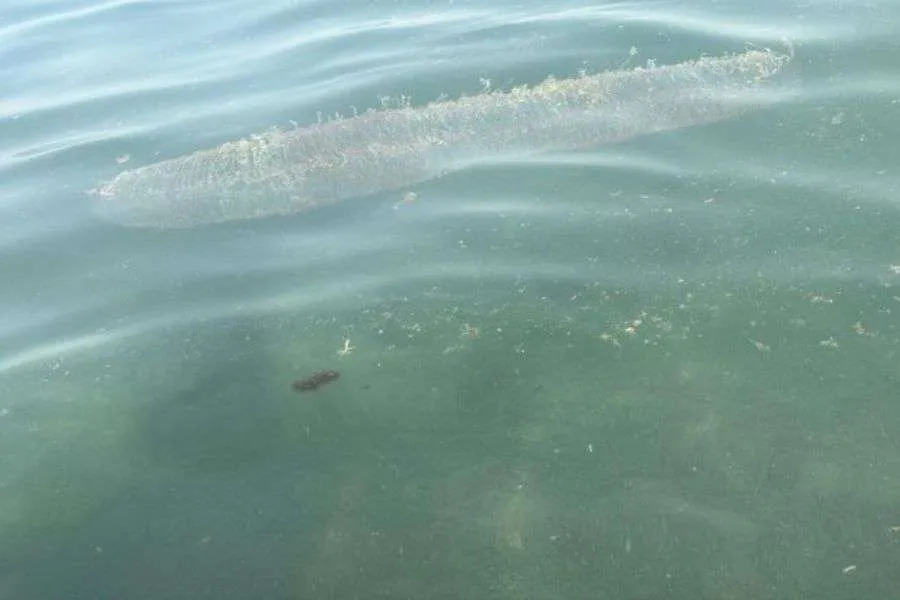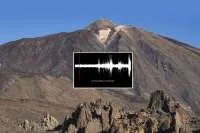‘Giant jellyfish’ sighting in Lanzarote turns out to be squid eggs
- 11-08-2025
- Lanzarote
- Canarian Weekly
- Photo Credit: La Voz de Lanzarote
Beachgoers in Playa Honda, Lanzarote, were surprised on Sunday afternoon when what appeared to be a giant jellyfish washed up near the shore. However, the unusual find turned out to be something entirely different: a floating mass of squid eggs.
According to the head of Lanzarote Emergency Services, who spoke to the person who first reported the sighting, the jelly-like, tube-shaped mass, measuring almost a metre in length, was identified as the egg mass of a diamondback squid (Thysanoteuthis rhombus).
The initial report prompted authorities to raise the red flag on the beach as a precautionary measure. While the discovery was ultimately harmless, officials reminded the public of the importance of reporting any unusual sightings to ensure beach safety.
Experts stress that diamondback squid eggs are not dangerous to humans. However, swimmers are advised not to touch or disturb them, as contact could damage the delicate egg sacs and harm developing squid. Anyone encountering a similar object in the sea or on the shore should alert lifeguards or local authorities so it can be identified and monitored.
This type of egg mass can contain up to 70,000 individual squid eggs. Unlike most squid species, which attach their eggs to the seabed or seagrass meadows, the diamondback squid keeps its eggs floating in the open water until they hatch.
Local marine experts say such sightings are rare in the Canary Islands and offer a fascinating glimpse into the life cycle of one of the ocean’s rarer squid species.
Other articles that may interest you...
Trending
Most Read Articles
Featured Videos
TributoFest: Michael Buble promo 14.02.2026
- 30-01-2026
TEAs 2025 Highlights
- 17-11-2025































































